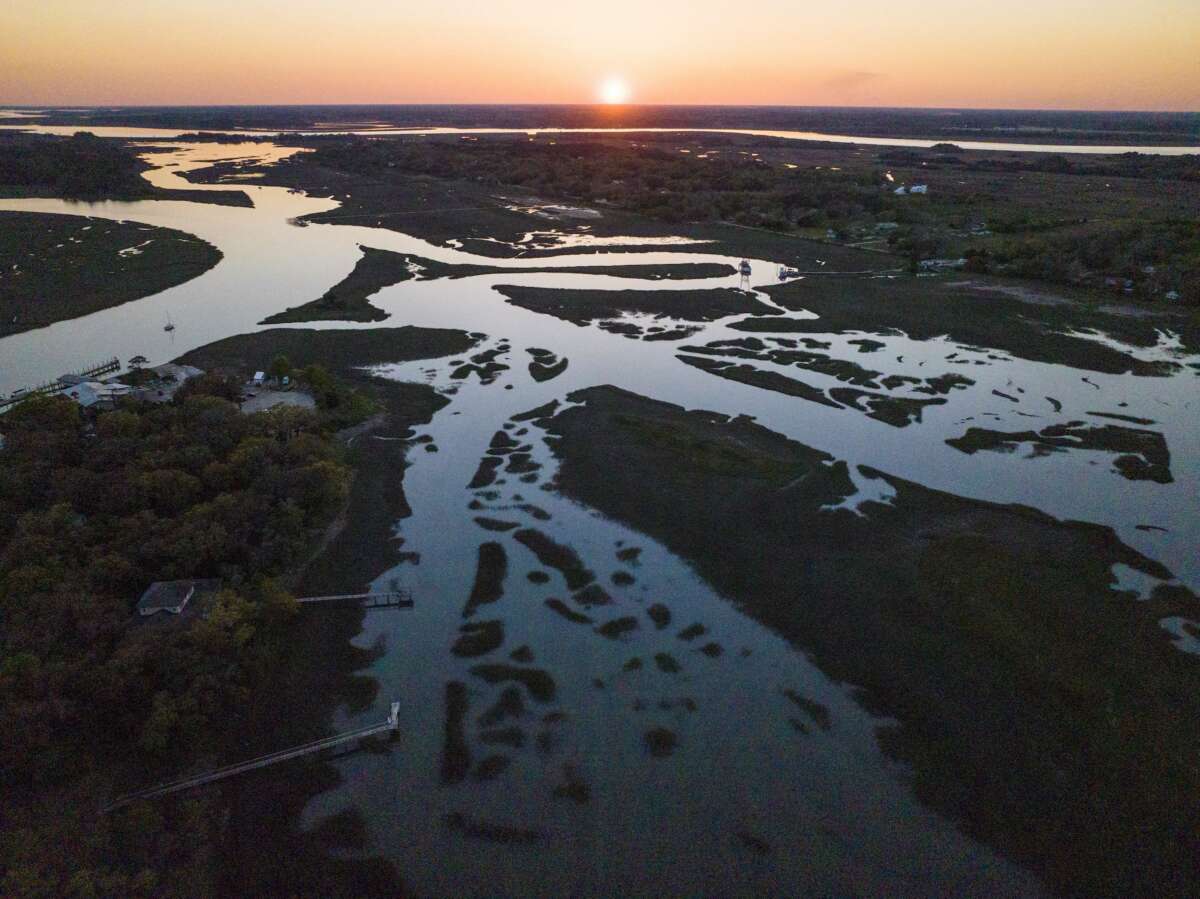The Supreme Court issued a ruling on Thursday that severely curtails the Environmental Protection Agency’s (EPA) ability to regulate water pollution in the latest of the far right justices’ crusade against environmental regulations.
In a 5-4 decision, with the three liberal justices and Brett Kavanaugh disagreeing, the Court ruled that the EPA’s jurisdiction over protecting the “waters of the United States” — which is subject to regulation under the Clean Water Act — has been too wide.
Environmental advocates, legal experts and the EPA have held that the agency can protect both “navigable waters” like lakes and rivers, and bodies of water like marshes, bogs, and other wetlands under the Clean Water Act. But writing for the majority, Justice Samuel Alito wrote that the “waters of the United States,” or WOTUS, are limited to wetlands with “a continuous surface connection” to large bodies of water.
This is an extreme decision that will exclude tens of millions of acres of wetlands from EPA protection from pollution, affecting roughly half of the country’s wetlands. Earthjustice senior vice president of programs Sam Sankar said that it will pose an “existential threat from polluters and developers” to wetlands that have long been protected from pollution.
Even far right Kavanaugh acknowledged the extremism of the new definition in a separate opinion, which was joined by Justices Elena Kagan, Sonia Sotomayor, and Ketanji Brown Jackson. The majority decision “departs from the statutory text, from 45 years of consistent agency practice, and from this Court’s precedents,” Kavanaugh wrote.
“By narrowing the act’s coverage of wetlands to only adjoining wetlands, the court’s new test will leave some long-regulated adjacent wetlands no longer covered by the Clean Water Act, with significant repercussions for water quality and flood control throughout the United States,” he continued.
Writing for the three liberals on the Court, Kagan wrote that the decision is yet another show of the far right justices having appointed themselves the sole decision makers on the environment. She compared Thursday’s decision to last year’s similarly extremist 6-3 decision in West Virginia v. EPA, which limited the EPA’s ability to regulate greenhouse gas emissions from power plants.
“The vice in both instances is the same: the Court’s appointment of itself as the national decision-maker on environmental policy,” Kagan wrote.
Though the Court differed vastly in its reasoning, all of the justices nominally agreed that the lower courts had ruled incorrectly and that the homeowners who brought the case should not have been subject to EPA regulation.
The case was brought by a couple from Idaho, Michael and Chantell Sackett, who were stopped by the EPA when trying to build a house on a wetland in the state. Though the couple could have obtained a permit that would likely have cleared them for the construction, they instead sued the government. This is the second time that the case has been brought before the High Court.
The Sacketts were picked as plaintiffs in the case by the Pacific Legal Foundation, a dark money and Koch family-tied group with a long history of initiating legal action against progressive policies, including a failed lawsuit against President Joe Biden’s student debt relief program.
Legal and environmental experts have said that the majority’s decision is unscientific and bucks the law in favor of handing a win to big developers and conservative activists who have long sought to weaken the Clean Water Act and WOTUS.
“If you want to feel really cynical about the Supreme Court — if you want to see how a majority has an infinite number of tools at its disposal to override the words that Congress wrote and instead enshrine a conservative agenda into law — read Alito’s opinion in [Sackett v. EPA]. Honestly, it’s like he’s barely even trying,” wrote Mark Joseph Stern for Slate.
“Alito relied almost entirely on policy arguments, peppering them with legalese to create the impression of an actual legal opinion. It doesn’t work, but who cares?,” Stern continued. “The court has anointed itself the final arbiter of every controversy in the land, and if it thinks the Clean Water Act goes too far, then, well, it’s the court’s sacred duty to rewrite it.”
Join us in defending the truth before it’s too late
The future of independent journalism is uncertain, and the consequences of losing it are too grave to ignore. We have hours left to raise the $12,0000 still needed to ensure Truthout remains safe, strong, and free. Every dollar raised goes directly toward the costs of producing news you can trust.
Please give what you can — because by supporting us with a tax-deductible donation, you’re not just preserving a source of news, you’re helping to safeguard what’s left of our democracy.
